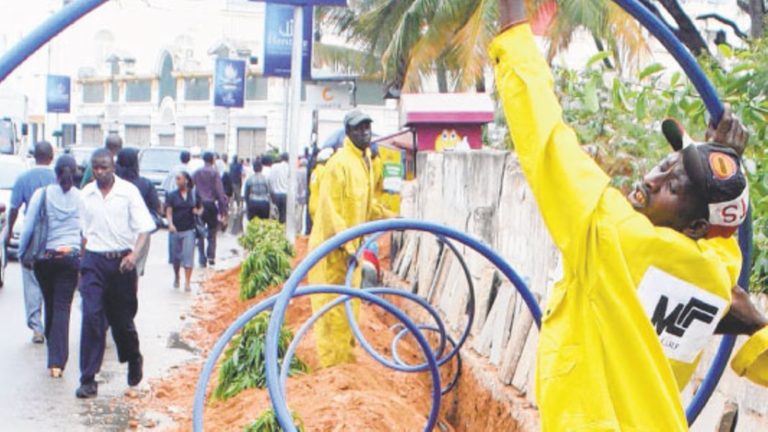The Federal Government has officially signed the ‘Designation and Protection of Critical National Information Infrastructure Order, 2024,’ 23 years after the country’s telecommunication revolution began.
In March 2023, former President Muhammadu Buhari announced plans to sign a new Presidential Order for the Designation and Protection of Critical National Information Infrastructure. However, this was not completed during his tenure.
On Wednesday, Bosun Tijani, minister of Communications, Innovation, and Digital Economy, expressed gratitude to President Bola Ahmed Tinubu for releasing the official gazette, ‘Designation and Protection of Critical National Information Infrastructure Order, 2024.’
This gazette now makes it an offence to purposefully damage assets such as telco towers/sites, switch stations, data centres, satellite infrastructure, submarine and fibre optic cables, transmission equipment, e-government platforms, and databases, among many others.
The official copy of the gazette has not yet been released, and the specific criminal penalties attached to these offences are not yet known. However, classifying telecom infrastructure as Critical National Information Infrastructure (CNII) is expected to reduce issues such as dropped calls, poor internet service, and unreliable network delivery.
The minister noted that this step will strengthen and protect investments in the ICT sector by reducing incidences that can damage the operations and functionality of technological systems, infrastructure, and networks.
“The security and protection of these Critical National Information Infrastructure (CNII) is a priority for this administration and will help improve the quality of telecoms services, which has very often been affected by disruption and intentional damage,” he stated.
Industry stakeholders have welcomed the move. “We are pleased with this action as we have been waiting for it. The industry will be better for it,” said Gbenga Adebayo, Chairman of the Association of Licensed Telecom Operators of Nigeria.
Since 2004, the telecom industry has been advocating for the classification of telecom infrastructure, such as towers and fibre cables, as a national asset to curb the growing problem of vandalism. These infrastructures qualify as ‘Critical National Assets and Infrastructure,’ which are essential for supporting a nation’s economic, political, and social life. The Nigeria Security and Civil Defence Corps (NSCDC) protects these infrastructures.
While other critical infrastructure, including power plants, electricity grids, oil and gas pipelines, roads, water supply systems, and hospitals, have long been classified as critical, telecom infrastructure—which forms the backbone of modern communication networks and the digital economy—has not received the same level of protection, leaving it vulnerable to constant sabotage.
Countries like China, India, and the United States consider telecom infrastructure critical and impose strict penalties on individuals who damage these assets.
At a recent industry event, Carl Cruz, the chief executive officer of Airtel Nigeria, said, “One of the major challenges faced by the telecoms industry is security. There are over a thousand cases of sabotage and fiber theft monthly.”
Frequent fibre optic cable cuts led to losses of at least $23m in 2023 and caused internet and service outages, impacting service quality. In February 2024, millions of MTN Nigeria customers could not make calls or connect to the internet for about four hours because of multiple fibre cuts.
MTN suffered more than 6,000 fibre cable cuts in 2023, and the telco relocated 2,500 km (1,553 miles) of vulnerable fibre cables between 2022 and 2023, costing more than N11 billion. This investment could have built 870 km of new fibre cables in underserved areas.
Data from the Nigerian Communications Commission (NCC) revealed that the telecom industry spent N14 billion to repair around 59,000 fibre cuts between 2022 and 2023. In 2022, the NCC reported an average of 40 fibre cuts daily. The NCC estimates that over 50,000 incidents of significant damage to telecom infrastructure, including fibre cuts, were reported in the five years leading up to 2023.
“This bill has been before the Senate for a while, and there has been a lot of lobbying before now. So, this is a good development,” added Adeolu Ogunbanjo, the President of the National Association of Telecoms Subscribers.

